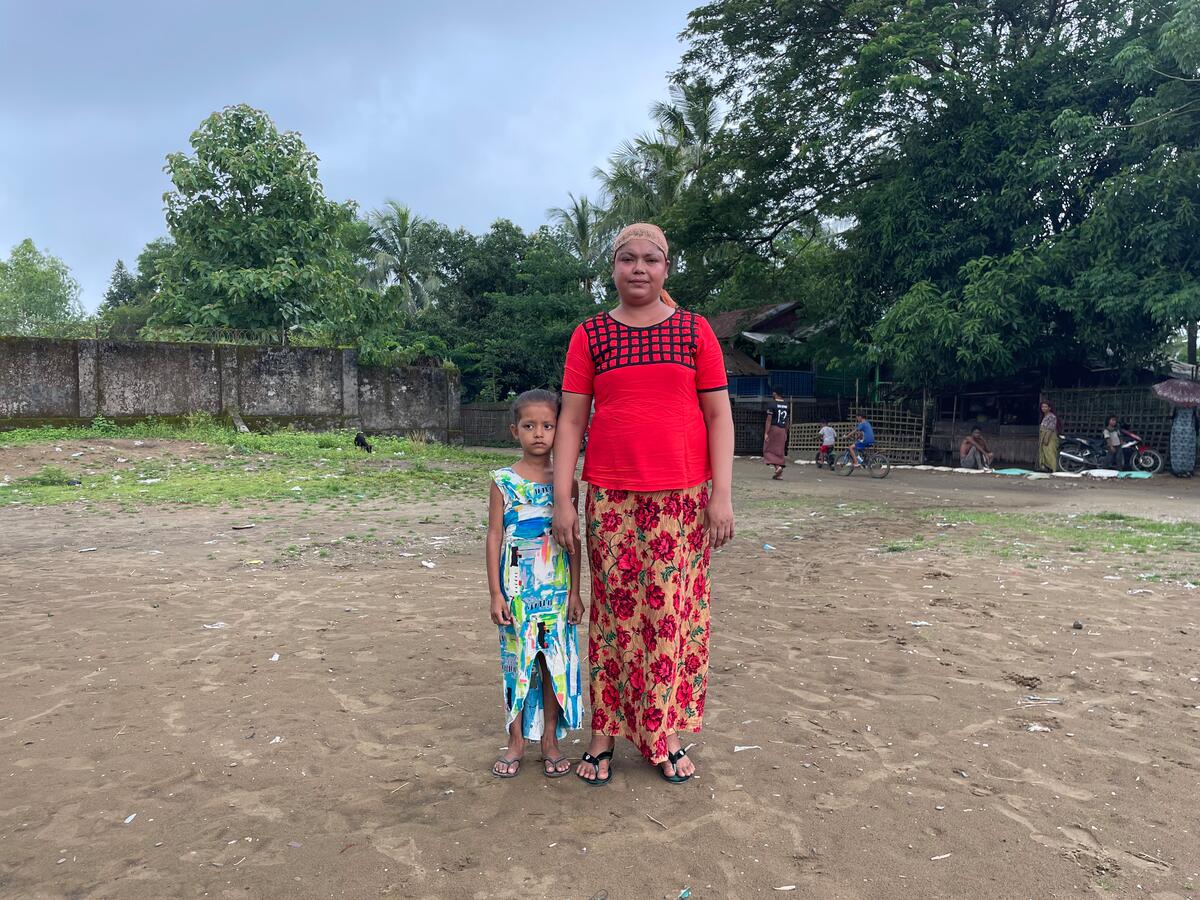Thousands displaced by stepped-up fighting in central-northern CAR
Thousands displaced by stepped-up fighting in central-northern CAR

BANGUI, Central African Republic, May 16 (UNHCR) - Stepped-up fighting in Central African Republic has triggered new displacement in the troubled country, with thousands fleeing their homes, the UN refugee agency reported on Friday.
"Already, as of May 2, more than 23,000 people were displaced in the Kaga Bandoro area, a near doubling from the level of a month earlier," UNHCR spokesman Adrian Edwards told journalists in Geneva. "With further fighting in the past week more people have had to flee their homes, although at present humanitarian agencies are blocked from being able to verify exact numbers," he added.
Most of the displaced are Christians, mainly women and children. Many of the men are in hiding, due to fear of attacks by armed groups. Thirteen deaths were reported on May 9 amid the fighting. The displaced are for the most part concentrated in several church compounds and in Dekoa, a town south of Kaga Bandoro.
"The displaced urgently need physical protection, food, non-food items, water and sanitation, and other help," Edwards said. Although some food support is being provided by UNHCR's partner agencies, people are fast consuming their own food reserves, and are unable to cultivate their fields due to fear of attacks. Already a high prevalence of diarrhoea is being reported among children.
Not all the displacement is recent or for the first time. Among the internally displaced people (IDPs) are some who have been unable to return to their homes since February, following attacks in their villages. Many have been living between displacement sites and hiding in the bush, making it difficult to get help to them.
UNHCR, in collaboration with other UN agencies, is providing shelters and non-food assistance, including tarpaulins, blankets, mats, kitchen sets, buckets and jerry cans. "We continue to reiterate our call to all parties in this conflict to allow access to IDPs and permit the delivery of life-saving humanitarian aid," spokesman Edwards said.
New displacement is also being seen in Central African Republic's north-west. Edwards said UNHCR had registered 2,445 displaced people in Paoua in Ouham Pendé prefecture following an attack in early May on a nearby village. People have also fled into the bush in neighbouring Ouham prefecture after an attack last Tuesday in the village of Markounda.
Given the close proximity of these areas to Chad, UNHCR has urged the Chadian authorities to continue providing access to its territory for people fleeing Central African Republic and in need of safe haven, as well as proper access to asylum procedures." We appreciate that so far people have been able to seek refuge there - some 8,000 since December," Edwards noted.
The situation in Bangui differs from that elsewhere in Central African Republic. Despite the fluid security situation, some internally displaced have been gradually returning. As of Tuesday, there were 135,050 internally displaced people living in 43 sites in the capital, compared with 142,635 the previous week.
Across Central African Republic, the number of internally displaced people is now estimated at about 560,000, including 135,050 in Bangui, while more than 115,500 Central Africans have fled to Cameroon, Chad, Democratic Republic of the Congo and Republic of Congo since December.
By Aikaterini Kitidi in Bangui, Central African Republic









